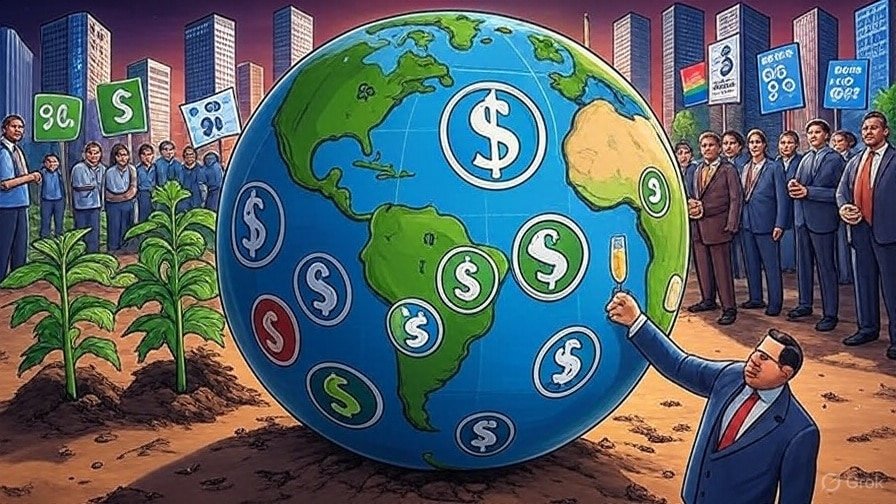Globalisation & Financial Crises – When the World Was Sold Off
Globalisation was sold as progress: open markets, free trade, and a connected world where everyone wins. In reality, it concentrated wealth, hollowed out industries, and left ordinary workers competing against cheap labour overseas.
Then came the financial crises — moments like 1997 in Asia, 2008 in the West, and repeated crashes since. Each time, ordinary people paid the price while banks and corporations walked away richer. Together, globalisation and financial crises reshaped society — and opened the door for woke politics to become the perfect distraction.
Table of contents
What Is Globalisation?
On paper, globalisation means a world without barriers: goods, money, and people flow freely across borders. Economists called it efficiency. Politicians called it inevitable. Corporations called it opportunity.
For workers, it meant jobs shipped abroad, wages suppressed, and communities hollowed out.
Winners and Losers
Globalisation didn’t lift all boats — it built yachts for a few while sinking the rest.
- Winners: Multinational corporations, financial markets, global elites.
- Losers: Factory towns, small farmers, local businesses, national sovereignty.
While companies enjoyed new markets and record profits, millions were told to “retrain” and accept precarious work.
The Shock of Financial Crises
Globalisation made economies so interconnected that a crash in one place triggered collapses everywhere.
- 1997: Asia’s financial meltdown.
- 2000: the dot-com bubble.
- 2008: the global banking collapse.
Each time, governments bailed out banks and corporations. Each time, citizens paid with austerity, lost jobs, and shrinking pensions. The lesson? Risk is privatised when times are good, socialised when times are bad.
How Crises Paved the Way for Woke Politics
By the 2010s, trust in the system had collapsed. People were angry. Protests like Occupy Wall Street called out inequality. Elites needed a new narrative — and found it in woke politics.
Instead of talking about globalisation’s winners and losers, debates shifted to identity, language, and culture wars. Corporations embraced diversity slogans, governments pushed ESG, and media focused on symbolic battles. Class struggle vanished from the headlines, replaced by safer fights over pronouns and statues.
Why It Matters
Globalisation and financial crises created the conditions for today’s world:
- Wealth concentrated at the top.
- Communities left behind.
- Anger redirected into culture wars.
The economic pain was real. The distraction came later. Woke politics didn’t cause inequality — it covered it up.
In sum
Globalisation promised prosperity. Financial crises exposed the lie. Ordinary people lost security while corporations gained more power. The backlash should have reignited class struggle — but instead, it was diverted into identity battles.
The next time you hear endless debates about language or diversity, remember: we didn’t end inequality — we just rebranded it.
FAQ Section
What is globalisation?
It’s the integration of markets, finance, and labour across borders, often benefiting corporations at the expense of workers.
How do financial crises connect to globalisation?
Interconnected economies mean crashes spread fast. Governments bail out elites, while citizens bear the costs.
Who benefited from globalisation?
Multinational corporations, global elites, and financial markets. Ordinary workers and local businesses lost out.
How did this lead to woke politics?
Economic anger was redirected. Instead of class struggle, culture wars and identity politics dominated public debate.



